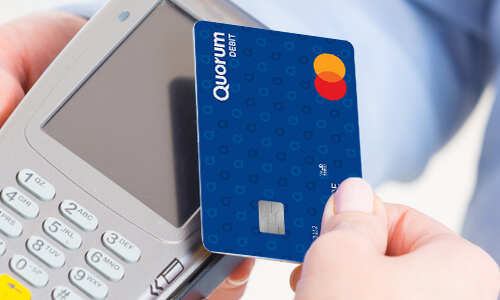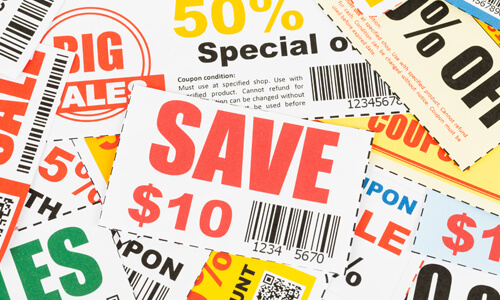Some people overspend when buying in bulk because they buy things that they don’t really need—and in large quantities! To be a successful bulk shopper, all it takes is a little planning. Here are our do’s and don’ts for bulk shopping:
DO: Buy things that won’t go bad.
If you have a small family, buying things such as pastries, cheese, or huge cans of food that you can’t freeze for later use can be wasteful. Anything you buy in large amounts should either be non-perishable (toilet paper, garbage bags, flour, sugar) or something you can freeze.
DON’T: Clutter your home.
The last thing you want is for your home to look like a warehouse. Wait until you’re running low on a certain item before making extra purchases. Don’t buy more food than you can fit into your freezer or pantry. Keep in mind, having a second refrigerator or deep freezer may give you more space, but there will be added utility costs for running those appliances—especially if they are older, less efficient models.
DO: Make a plan.
If you’re buying enough food for a month, plan out your meals before you make any purchases. Buy items that you can use in multiple meals instead of just one or two. Make sure to take into account any extended periods you won’t be cooking at home, such as during vacation.
DON’T: Bulk shop every week.
Limit bulk shopping once a month. Shop for extra fruits and veggies that you need weekly at a smaller store or farmers market. Weekly bulk shopping increases the chance of buying things you don’t need, costing you more in the long run.
DO: Keep track of what you have.
Develop an organized and easily viewable storage system so you can quickly decide if it’s time to restock items. If you can’t tell what you need to purchase, versus what you have at home, you may end up buying items that are already hiding in the back of the pantry.
DON’T: Assume buying in bulk is cheaper.
Not all bulk items will save you money. Sometimes stores market products as “bulk”, but the price per unit or ounce is not any cheaper than buying a standard quantity—sometimes it may even be more expensive. It is a good idea to keep track of sales and prices at local stores to make sure you are still getting a good deal by buying in bulk.
DO: Buy only what you need and use.
It seems like common sense, but sometimes, the appeal of a cheaper price may encourage us to buy things we may not normally buy. It’s easy to get enticed by a good price and end up with a large amount of something you don’t like. This will leave you with less room in your budget for things you actually use.
DON’T: Go bulk all at once.
Make sure you can handle any extra costs before you decide to bulk up. Your budget may not be prepared to buy bulk for everything all at once. Instead, start slowly, and only add bulk purchases as it makes sense for your family and budget.
“To be a successful bulk shopper, all it takes is a little planning.”
Source: Balance Financial Fitness






Comments Section
Please note: Comments are not monitored for member servicing inquiries and will not be published. If you have a question or comment about a Quorum product or account, please visit quorumfcu.org to submit a query with our Member Service Team. Thank you.